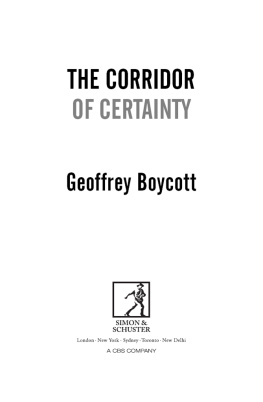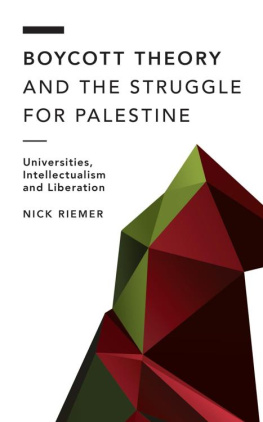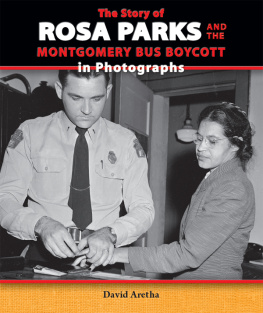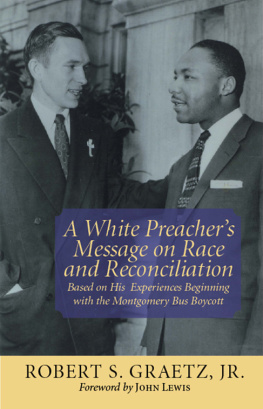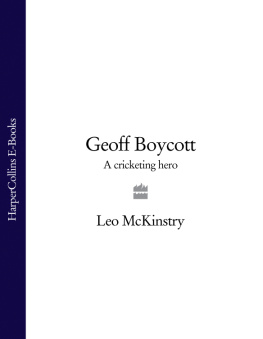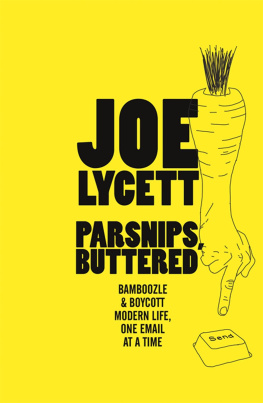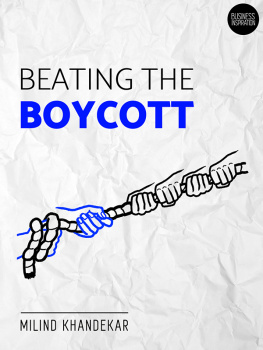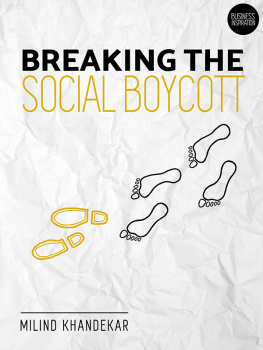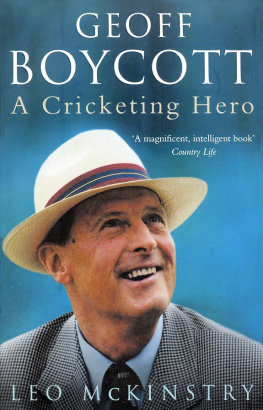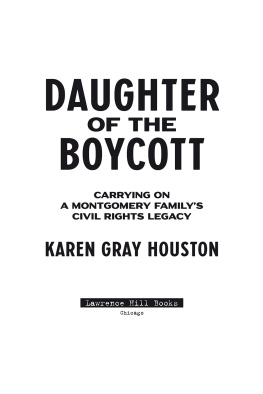THE CORRIDOR
OF CERTAINTY
First published in Great Britain by Simon & Schuster UK Ltd, 2014
A CBS COMPANY
Copyright 2014 by Geoffrey Boycott
This book is copyright under the Berne Convention.
No reproduction without permission.
All rights reserved.
The right of Geoffrey Boycott to be identified as the author of this work has been asserted by him in accordance with sections 77 and 78 of the Copyright, Designs and Patents Act, 1988.
Simon & Schuster UK Ltd
1st Floor
222 Grays Inn Road
London WC1X 8HB
www.simonandschuster.co.uk
Simon & Schuster Australia, Sydney
Simon & Schuster India, New Delhi
Every reasonable effort has been made to contact copyright holders of material reproduced in this book. If any have inadvertently been overlooked, the publishers would be glad to hear from them and make good in future editions any errors or omissions brought to their attention.
A CIP catalogue record for this book is available from the British Library
Hardback ISBN: 978-1-47113-002-1
Ebook ISBN: 978-1-47113-003-8
Typeset in the UK by M Rules
Printed and bound by CPI Group (UK) Ltd, Croydon, CR0 4YY
CONTENTS
INTRODUCTION
O ver the years I have written lots of books about cricket but just one autobiography, which was published in 1987. That book was dominated by cricket, because I saw my life purely as a cricketer. Since then I have been asked on numerous occasions to bring my life up to date, however this book is neither just about cricket nor an autobiography its a bit of both, covering my recollections of the past, views on the present, righting some wrongs and discussing the issues that are important to me.
For the first time I have opened up about my personal life, something in the past I guarded with the same passion I put into batting, and reflected on how fatherhood altered my priorities.
It has taken more than 11 years for me to be ready to recount the terrifying and painful months spent facing the greatest battle of my life. I was diagnosed with cancer of the tongue on 4 September 2002 and told I would be dead within three months if I did not embark on a gruelling round of treatments. I have been honest about that experience and held nothing back. Even after all this time, it surprised me how emotive and distressing it was to recall the horrific impact those treatments had on my body. It is not what the cancer does to you, but the torture you have to put yourself through to be cured, and the fact that even then, at the back of your mind, you are thinking: I might go through all this and still not survive.
In the darkest moments, I drew on some of my cricketing experiences to help pull me through. I would count off my sessions of radiation with the same determination I counted my runs on the way to scoring another hundred. But unlike cricket, where I reached the top solely down to my own efforts, cancer was not a one-man battle. This time I couldnt have done it on my own. Without the support and bullying encouragement of my wife Rachael, I would not be here now. She has also helped me fill in some of the gaps, parts I had presumably forgotten because I was either too ill at the time to take it in or I had blacked them out as they were too painful to recall.
Rachael and I also wanted to show that dealing with cancer is not just about the person afflicted, it hurts loved ones just as much, as they face the awful task of nursing the sufferer through their treatment, while dealing with their own feelings of fear and despair.
I hope by committing my cancer story to paper it may be of help to anyone who is unlucky enough to be diagnosed with this awful disease. I can understand why some people give up and decide they have had enough, but all I can say is you need a positive outlook and the courage to complete the treatment. Thats all you can do; its what I did, and I am delighted to be here to tell that story.
Such an experience changes your outlook on life and this book is certainly not just about fighting cancer. Ive never written before about how I repaired my relationship with Fred Trueman, and I wanted to try to show the real Brian Clough, two of the greatest characters in British sporting history. Cloughie loved his cricket and was one of my best friends. He was a manager who conquered Europe, not once but twice, with great football and an infectious personality. Sadly, many of the modern generation remember him only as the alcoholic wreck portrayed in the film and book, The Damned United.
It is more than 30 years since I last opened the batting for England and my final appearance for Yorkshire was at Scarborough on 12 September 1986. I have never picked up a cricket bat since, not even for charity. I dont want to play if it cannot be at the top. But on that September day, when I walked off the field at 5.21pm, the saddest thing of all for me was that neither the Yorkshire members, the press nor even I knew it was to be my last match. There was no fanfare, no applause, no plaudits.
After playing for the club for 25 years, in 414 matches and scoring 32,570 runs, the ex-players on the Yorkshire cricket committee were so bitter and resentful of my rapport with the members that they deliberately held back their decision it would be my last season. True to form, they gave no thought for anyone else and did not allow my Yorkshire supporters a chance to say goodbye and thank you; nor was there an opportunity for me to thank them. I feel it was a wicked thing to do. In this book I recount my recollections and battles with these committee men, and how I retaliated after some of the old enemies and jealousies resurfaced when I became the clubs president in 2012.
But this isnt just a case of me trying to answer my critics. I know I have made mistakes in my life, and growing older has given me a new perspective on events, so I wanted to explore some of those mistakes and assess what I did wrong. I now realise that taking on the captaincy of Yorkshire, and not playing for England for three years, was one of my greatest cricketing regrets.
Listening to Tony Greigs widow at his memorial service prompted me to reflect on one of the great myths of cricket: the Packer series, which so many believe changed the face of the game. I was at the heart of it, and one of only a few left who really knows what went on, so I wanted to set the record straight on this subject that continues to cause debate even now.
Cricket is all I have known for more than 50 years and I have been fortunate to have made two very successful careers out of it. My commentary job takes me all over the world and I have seen at first hand the problems the game faces. The greatest by far is the horrible, modern scourge of sledging, which is dragging cricket down, and our administrators are too weak to do anything about it. I would have no problem dealing with the sledgers!
Of more immediate concern is the state of this England team. Why did Kevin Pietersens career have to end? How did Australia win the Ashes 50 and just what can England do to win back the urn?
These are some of the issues from the past, present and future that interest me, and I hope this book captures them all, for one thing that has never changed is my love for the game of cricket.
Geoffrey Boycott
Boston Spa, Yorkshire
May 2014
CHAPTER 1
TROUBLE AND STRIFE
T hroughout my cricketing life I have made enemies and I accept it has often been caused by my forthright character, which has sometimes rubbed people up the wrong way. For that I am sorry.
My mother used to say I had tunnel vision. I can hear her now: Our Geoff has got blinkers on; he just sees what he wants and goes for it. She knew from personal experience what I could be like. I once passed Mum in the street near our house and did not even speak to her because I was so deep in thought about my knock earlier that day. She was mortified and in tears when I got home, but I was just thinking about my batting and unable to see the world around me.
Next page
